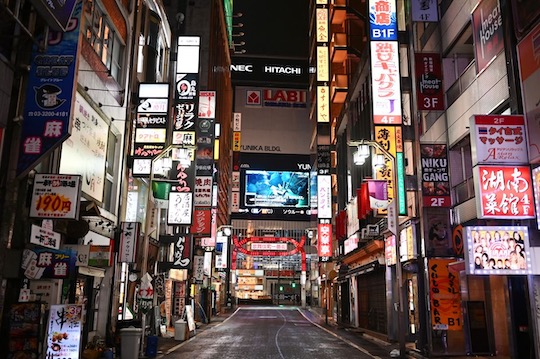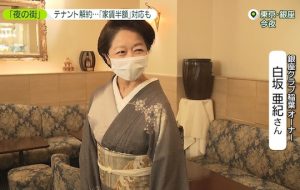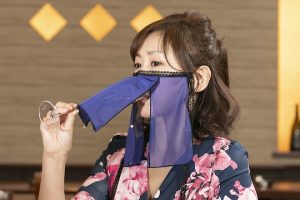Tokyo government pays host and hostess clubs to close during coronavirus second wave
Tokyo is experiencing a second wave of coronavirus infections, with upwards of 200+ infections announced per day. Almost all of these, so far, are younger people able to cope with symptoms and the pressure of the city’s health facilities is currently minimal. Let’s hope that this situation does not worsen.
As we have continued to write on these pages, much of the blame for clusters has focused — we think, overly and unfairly so — on the mizu shobai “water trade” world of nighttime entertainment, particularly host and hostess clubs, which have been almost demonized by the mainstream media and government officials.
Some have taken practical approaches, such as coming up with special face veils or even working with Shinjuku officials to increase testing.
And now comes news that the Tokyo government is actually paying host and hostess clubs to close during the pandemic in order to help reduce the risk of infection among patrons and employees.

Since the government cannot legally force closures, it has come up novel means of achieving its goals: social pressure (i.e., naming and shaming pachiko parlors that did not close during the state of emergency in May) or financial incentives.
Initially, the idea of paying mizu shobai businesses subsidiary funds was out of the question, but since 80% of infections announced on Thursday were among people in their twenties and thirties, the government has expanded its support to include nightlife establishments.
Of course, it should be noted that such districts in Shinjuku and Ikebukuro are receiving the bulk of the testing, which inevitably means more young people and visitors to those areas will be identified. It is not the same as proving that only people under 40 have and are spreading the infection.
And we should also keep in mind that hostess clubs, in particular, traditionally attract older, moneyed clients, so the correlation of young people with mizu shobai, rather than just with bars and karaoke places in general, is not fully logical. (For some perspective, baseball and soccer matches are now allowing the public in to watch games, bringing thousands of fans into close proximity each time — as long as they don’t cheer or sing.)
Regardless of the rationale, the result is cash for clubs.
The Tokyo Metropolitan Government is paying ¥500,000 ($4,670) to nightclubs and similar establishments if they agree to close for 10 days or more.
Individual hosts and hostesses identified as carriers of the coronavirus are receiving ¥100,000 ($934) to stay off work.
Again, this is fostering a vicious circle, of sorts, because hosts and hostesses are now struggling for work, even if their clubs are open, so they are probably quite pleased to come forward for testing and be identified as infected. It is far from the same as meaning that hosts and hostesses are the sole army of secret carriers in Tokyo.
All in all, this is a curious situation and we are intrigued to see if a new relationship between the authorities with mizu shobai, one of the country’s most entrenched and successful, yet somewhat illicit, industries, will emerge after the crisis is over.














